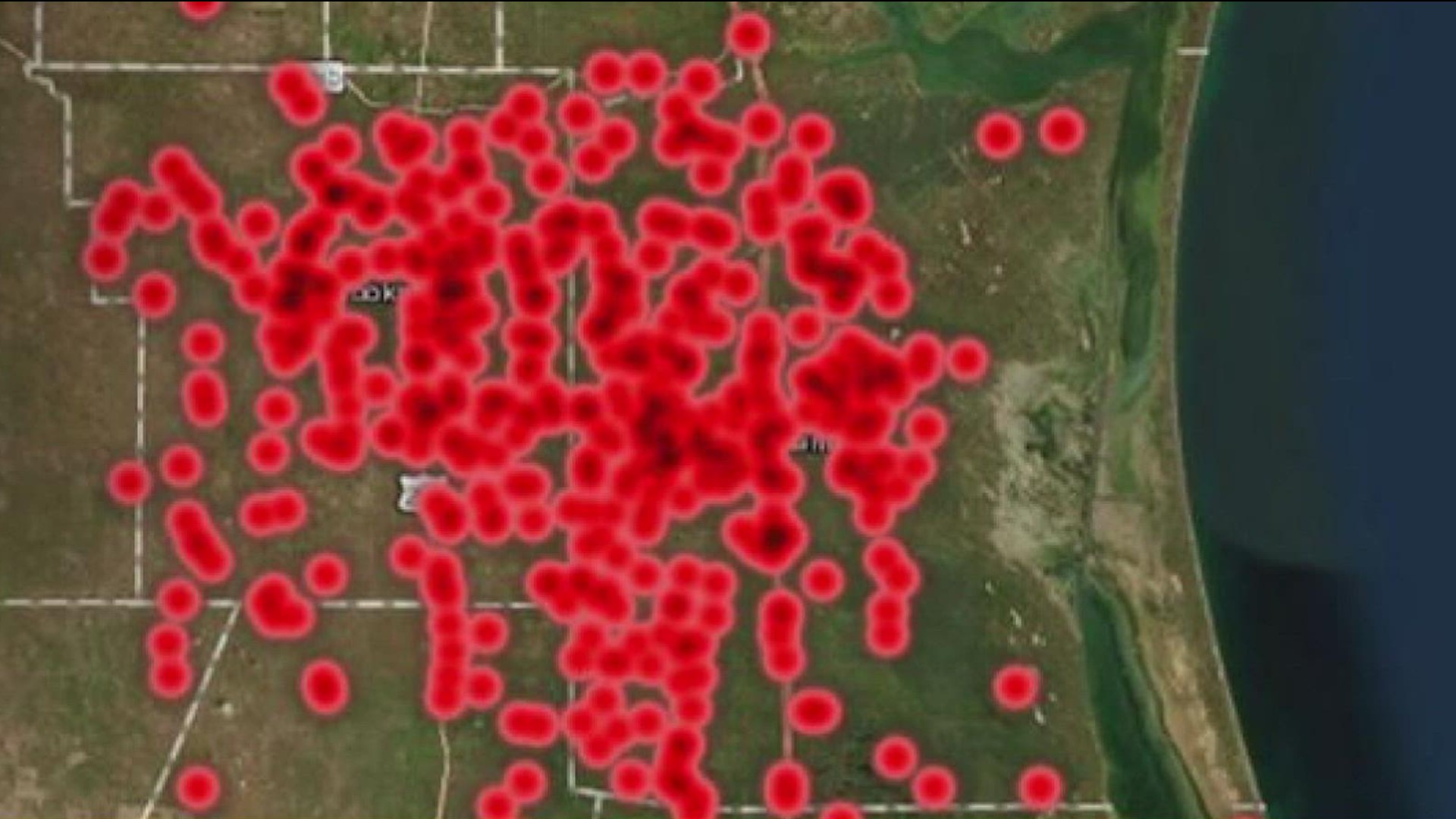CORPUS CHRISTI, Texas — U.S. Border Patrol agents from the Rio Grande Valley Sector receive numerous calls from migrants in need of rescue in Brooks and Kenedy counties, and are now ramping up efforts to prevent heat related deaths.
Agents have made more than 1,000 rescues this fiscal year, in fact, and according to the U.S. Border Patrol more than 70-percent of those rescue calls are heat related.
To help paint a clearer picture of that, Border Patrol agents in the RGV Sector shared an image highlighting where those rescue calls take place -- on Sunday, one of those calls involved a migrant being bitten by a rattlesnake. He had to be taken to a hospital to receive antivenom treatment.
"We wanted to illustrate how desolate it is in that area, and how far north of the RGV that is," Border Patrol Agent Jesse Moreno said. "There is brush, very limited cellular coverage, ranch houses are far and few between."
Moreno decided to come up with a map to illustrate how dangerous it is to make trips on foot through what is essentially a desert across Brooks and Kenedy counties, all in hopes of avoiding the U.S. Border Patrol checkpoint in Falfurrias, Texas.
"The majority of our rescues coming from that area is, the smugglers will tell these individuals, 'It's going to be a 10- or 20-minute walk,' and in reality it's not," Moreno said.
Eddie Canales is Executive Director for the South Texas Human Rights Center in Falfurrias. For years he's been placing water in blue emergency barrels all across Brooks County for migrants traveling through the brush. He believes immigration policy needs to be changed to allow for a more orderly system of entry into the country.
"Why are we forcing people to get into the desert and into the more extreme weather conditions for, when the purpose is for them to get through and go to work?" Canales said. "So, it just does not make any economic sense. We need the labor here but we're forcing them to go in through the desert."
Canales said that until immigration policies change, he doesn't expect the situation in the Brooks and Kenedy county brushlands to improve.
More from 3News on KIIITV.com:
- Surfers raise concerns over new proposed Bob Hall Pier design
- Game Wardens looking for person responsible for killing green sea turtle with a spear gun at Packery Channel
- TxDOT suspends part of developer's work on new Harbor Bridge
- Grand jury moves to 'no bill' U.S. Marshal involved in the shooting of a Corpus Christi man
Want to send us a news tip?
Put your name and contact information below so we can get in touch with you about your story should we have questions or need more information. We realize some stories are sensitive in nature. Let us know if you'd like to remain anonymous.
If you do not have a photo/video to submit, just click "OK" to skip that prompt.

